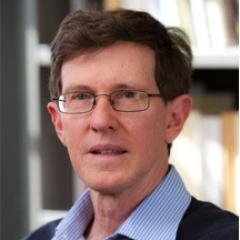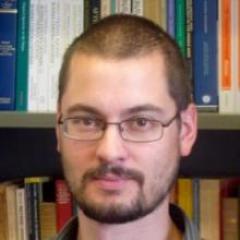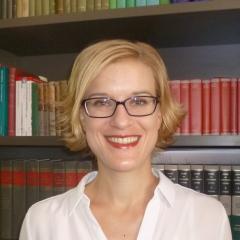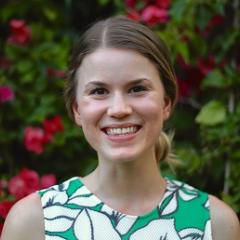Background
Secularization theory has long provided the standard narrative for our understanding of modernization. The theory proposes, in essence, that as societies transition into modernity, they become more scientific and less religious. Recent global events have challenged this paradigm, and with it long-standing assumptions about the inevitability and universality of religious decline and scientific advance.
The aim of this project is to explore past and present relations between science and religion with a view to developing a new account of the role of science in the processes of secularization. More specifically, it will investigate whether science has been a major cause of secularization, and whether the pattern of scientific advance and corresponding religious decline observed in many Western countries represents the model that all societies are destined to follow.
The research will address a major unsolved puzzle about the relations between religion, science and modernization. Beyond this, it will shed light on a range of significant practical concerns. At a global level, the return of religion and the ethno-religious conflicts associated with it require new models in order to be properly understood and responded to; at a more local level, conspicuous instances of religiously motivated opposition to science and its associated technologies similarly call for explanations no longer provided by the standard model.
In addition to general historical or sociological approaches to these issues, the project will involve specific studies of secularization in different cultural contexts, including empirical investigations of beliefs about science and religion.
Approach
Any attempt to establish a general theory about how science is related to secularization must confront doubts about whether a general theory connecting science, religion and Western modernity is possible at all. Many historians are of the view that not only is the science-causes-secularization model wrong, but that any such general model is likely to be wrong. According to this version of events what we encounter in the past is a complex situation that is susceptible to thick description, but not to overarching theoretical explanations. The approach of this project in relation to this difficulty will be its working assumption, grounded in Prof. Harrison’s previous work, that religion and science are not independent historical entities. Accordingly, the historical task is not that of seeking to uncover some essential relationship between two historically contingent phenomena. Rather the attempt will be to trace the way in which the concepts ‘religion’ and ‘science’ emerged in the modern West at a particular time and place and how from their very inception they were placed into a particular relation with each other. The suggestion will be that both were defined as sets of beliefs and practices, and their doctrinal content was understood to be universal in scope. In consequence, the conditions for their conflictual relationship were established in the very way in which they came to be conceptualized in the West. Importantly, this was a new development that came in the wake of the Protestant reformation. Before this, scientia and religio were understood to be virtues and not bodies of knowledge.
The hypothesis is that this constructed relationship lies at the heart of secularization theory, and accounts for its successes and failures. The premise of the previous model is that ‘religion’ is a universal feature of human societies, albeit one that has diverse cultural manifestations. World religions were thus presumed to be more or less uniformly susceptible to the secularizing powers of science because, irrespective of their superficial differences, they share the essential features of a generic ‘religion’ that render their capitulation to the advance of science inevitable. As for science, its potency as an agent of secularization was attributed to the fact that scientific claims are not culture-specific, but universal in scope. The logic of the model suggests that if science acted as an agent of secularization in the West, to the extent that it permeates other cultures it ought to have a similar effect, provided that the religious traditions are similar to Western Christianity in the relevant respects. In the latter assumption lie the reasons for the failure of the standard model.
The approach proposed for this project provides a way of accounting for the apparently conflicting evidence, set out above, that indicates some correlation between scientific advance and corresponding religious decline,but no universal pattern. If the hypothesis is well founded, it will turn out that the concept ‘religion’ does the primary work in these processes of secularization. To the extent that this concept is accepted as offering a satisfactory account of the phenomena it purports to describe, it transforms the relevant practices and beliefs into a form that renders them susceptible to the secularizing power of science. (The process is somewhat analogous to two-fold cancer treatments that operate by introducing a therapeutic agent that attaches itself to tumour cells, rendering them susceptible to attack by a second agent. The second agent is ineffective against cells that have not undergone the relevant transformation.) The arrival of a particular understanding of religion is a requisite condition for modern science to perform its secularizing work.
The classical model held that religion, understood primarily as a system of beliefs, was universal in scope and vulnerable to a science that was uniform in its secularizing effects. The provisional hypothesis is that the secularizing power of science is limited to groups who believe that religion is primarily a set of beliefs. On this view, it is the uptake of the modern, Western conception of religion that accounts for the observed patterns of the corrosive effects of science. The patchiness of the data relating to science and religion can be explained as a function of the extent to which the relevant populations have come to understand religion in a particular way. This account would be consistent with evidence of secularization in Western countries with Protestant backgrounds and in a Western-educated global community.
The basic tasks of the project are thus to establish how the concept came into existence in the West and how it was placed into a particular relation to an emerging science. Further, it needs to be determined how the concept came to be accepted by those whose activities it purported to describe (or not). Based on these considerations, the project will focus on four overlapping areas.
-
Historical Work on Concept Formation. The rationale for this has already been set out in detail above. While a number of the key components of the research have a profile in the existing literature, until now there has been no attempt to bring them together in ways that are illuminative of this important issue. Conducting this historical work will be one of the chief tasks of the Laureate Fellow.
-
Historical Case Studies. The model suggests particular historical case studies in the relations of science and secularization. Two examples that might be considered are the national building and modernization efforts of Kemal Attatürk and Jawaharlal Nehru. Both figures self-consciously deployed Western science as an agent of secularization, respectively, in Turkey and India. These attempts were nothing less than experimental applications of the traditional theory. Given the different religious backgrounds of these countries, and the different outcomes of the secularizing programmes these represent excellent test cases for competing theories of science and secularization. These case studies will be the focus of two of the postdoctoral research projects, to be developed in conjunction the broader work in intellectual history that will be one my primary research tasks.
-
Contemporary Case Studies. This element of the project will explore the extent of religiously motivated anti-scientific sentiment in Australia and elsewhere—whether it is linked to specific religious traditions; which aspects of science are most contentious; whether science education or particular forms of science communication are effective in changing attitudes towards science.
- Other Empirical Investigations. The issue of whether certain conceptions of religion are related to the processes of secularization is one that might be tested empirically. Thus it should be possible to determine whether highly secularized societies (appropriately defined) are also ones in which, for example, a propositional understanding of religion prevails. Similarly, it should be possible to investigate whether individuals who are sympathetic to religion are more or less likely to understand it in propositional terms.
Outcomes and Communication of Results
The results of this research will be communicated in print to scholarly audiences through monographs and edited collections, along with the publication of articles in top tier journals
Another important outlet for this research will be seminar presentations and papers by project researchers, delivered at the large annual meetings of the relevant scholarly organizations. The project will also run its own seminars and workshops, involving a mix of local, interstate, and international participants, and these will form the basis of the edited collections.
For more general audiences the findings will be disseminated through publications in more popular outlets in a variety of media.





